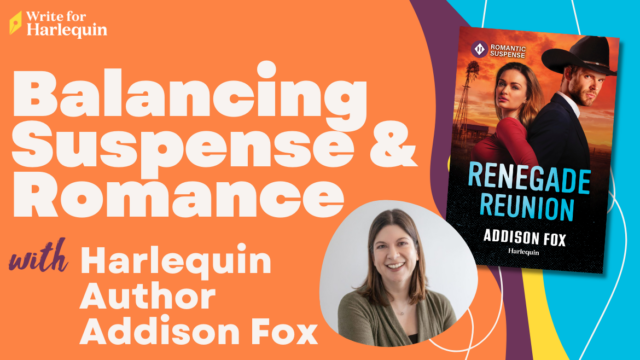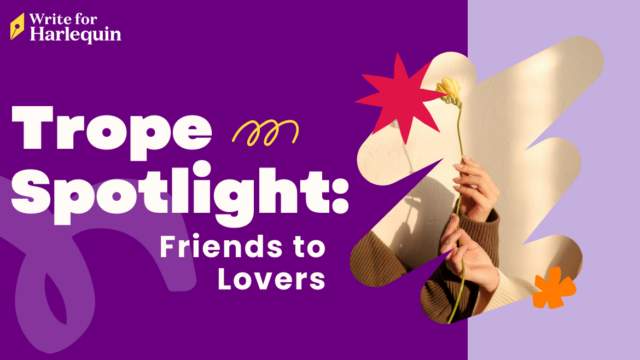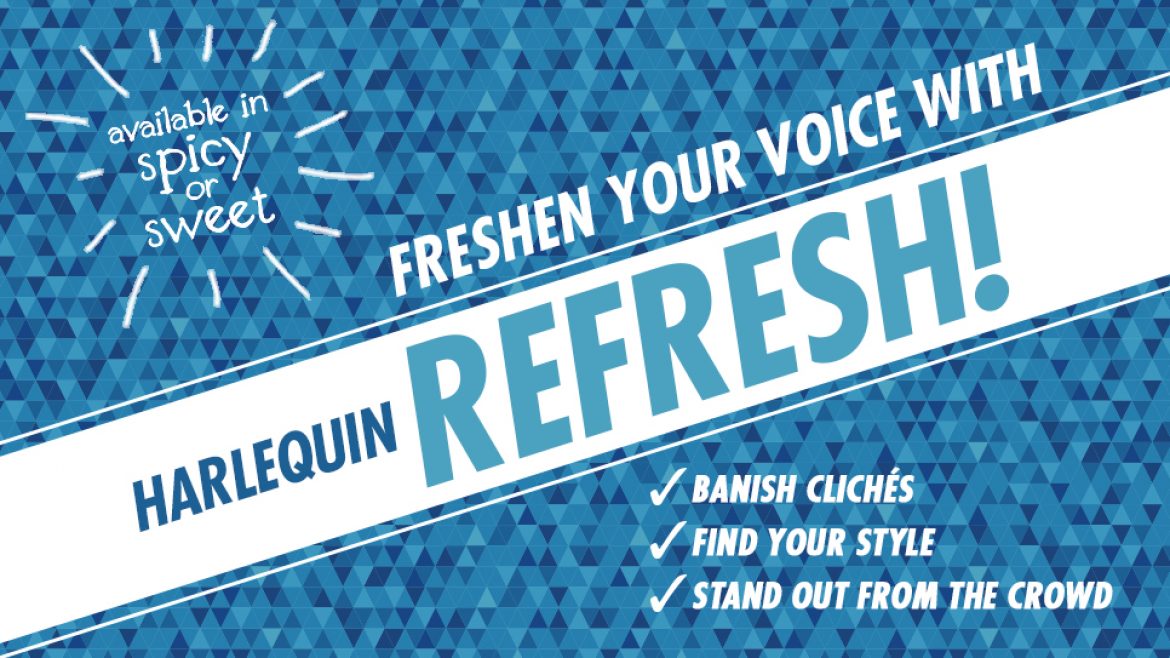
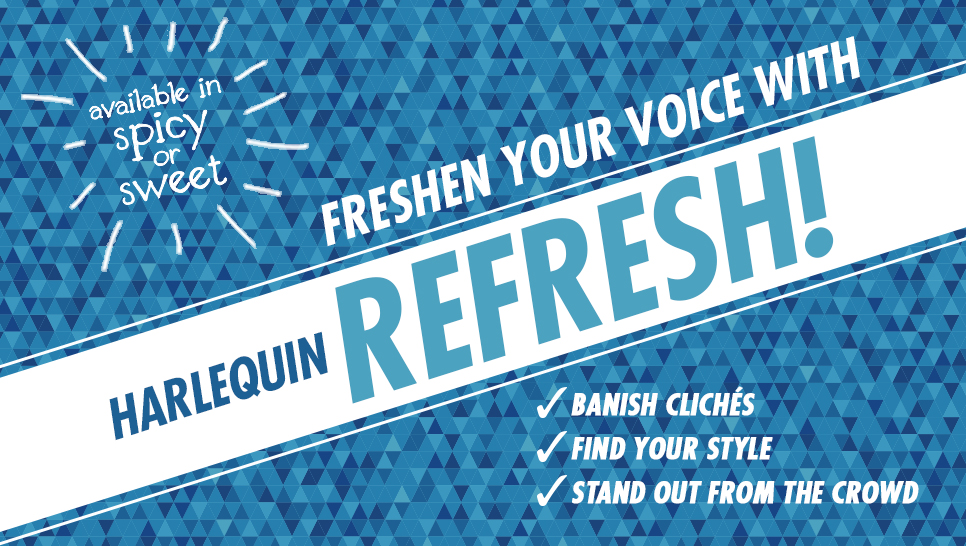
(We loved this post so much, we’re re-posting from our archives. Enjoy!)
Harlequin editors read a lot of romance books. Sometimes a scene idea or plot twist that seems fresh to a new author is actually one we’ve read many times. And that’s not surprising. When starting a new creative venture, it’s natural to emulate artists whom you admire, including aspects of their “voice” – word choice, character types and situations. On top of that, you’re writing category romance, with a mighty list of reader expectations built in.
As with so much else in fiction writing, thoughtful character motivation is at the heart of making your scenes feel fresh. Even the most familiar story ideas and situations can feel new in the hands of an author who has thought long and hard about how her characters react to conflict and why they do what they do.
We spoke to editors in all three Harlequin offices and asked them about romance plot clichés they would like to see refreshed or simply tossed. Read their honest answers below! Names have been withheld to protect the innocent. (Ok, some of these are from Patience and can be found on her fabulous blog.)
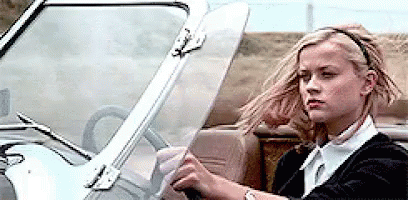
“Stories that start with the heroine driving back to her hometown and thinking about all the backstory that got her to this moment.”
“A heroine who states at the beginning of the book that she has no time for a relationship because she is focused on her career…in a romance novel the heroine should have something super-bad or significant happen for her to express this and mean it.” Variation: “Heroine (or hero) has experienced heartbreak and WILL NEVER LOVE AGAIN – meeting [the hero] was the last thing she expected! Unexpected romance does not necessarily mean conflict. I’d like to see a more compelling reason these two people are about to completely mess up each other’s lives.”
“The whole will-they-won’t-they question is not enough to keep a reader engaged. If a hero and heroine are obviously interested in each other and there is nothing keeping them apart, why aren’t they together?”
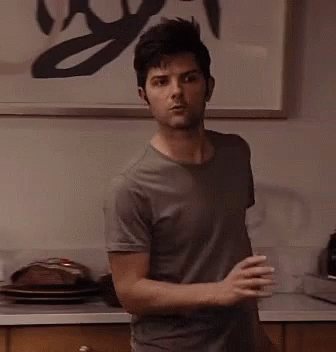
“Things fall a bit flat for me when the majority of the conflict relies on misunderstanding or miscommunication (like seeing the love interest with another man/woman and assuming it’s a date, or when one party refuses to talk to another because of something they think happened), especially when the instances start to feel repetitive or like antics.”
“The hero bullied the heroine when they were younger, but now that he’s older and she’s (inevitably) gorgeous, he’s super nice to her. I especially have an issue with this when the heroine doesn’t acknowledge their past. I can understand that sometimes people have done things they shouldn’t have in the past, but a man shouldn’t be nice to a woman just because she is beautiful. That in and of itself shows a lack of growth. And why is it always that the girl was nerdy, a tomboy, etc. (and therefore unattractive) when she was younger, and she’s suddenly gorgeous as an adult? Yet, the guys are attractive their entire lives!”
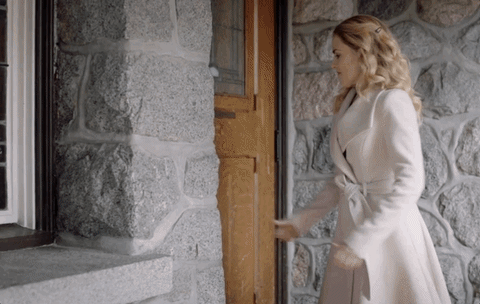
“Anything to do with the heroine falling down or being clumsy.” Variation: “She’s daintily eating potato skins and some sour cream doesn’t quite make it into her mouth. The hero leans over and dabs at her lips, smirking over how cute she is.”
“Dinner is romantic, as long as they don’t eat the same thing in every book. I wish I had a dime for every ‘garden salad’ and loaf of ‘crusty bread’ that characters have chomped on.” (Food choices can date your voice too.)
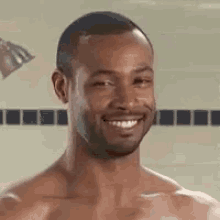
“The sex is just getting started, or the pleasure has been kind of one-sided so far (usually in the hero’s favour), and he says, ‘We’re not done yet,’ and she seems surprised. (‘We’re not? There’s more?’) I’m always like, ‘What’s going on? The reader knows more is coming, why is the heroine so surprised right now?’”
What are some romance plot or scene clichés that you’re tired of seeing? Join the conversation in the comments!


